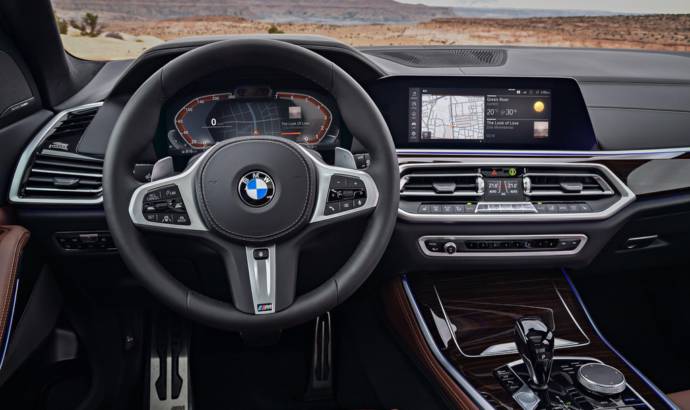After Mercedes was praised for its technologically advanced interior and even Audi made some impressive progress with its high number of screens, BMW decided its time to catch up. The Bavarian manufacturer is launching the new BMW Cockpit, a version that was radically revised and modernised for the launch of new product highlights like the BMW X5, BMW 8 Series, BMW Z4 and BMW 3 Series, which celebrate their premiere at the Mondial de l’Automobile 2018 in Paris.
BMW Live Cockpit (as well as BMW Live Cockpit Plus and BMW Live Cockpit Professional) refers to the three levels of hardware and basic functionality, such as the installed display cluster, navigation and entertainment system, available interfaces and technical requirements for operating options, like voice and gesture control.
BMW Operating System 7.0 refers to the software package and functionality of the new and fully digital display and control concept, which relies on the digital-only display cluster of BMW Live Cockpit Professional. Version numbering already hints at regular enhancements through remote software upgrades.
The Info Display no longer replicates analogue circular gauges. These have been replaced by arced design elements that open towards the centre. Their shape and arrangement bring BMW’s typical “four-eyed” face from the front end into the interior.
The design and graphic presentation of the entire display cluster, comprising Info and Control Display, as well as Rear-Seat Entertainment screens, is synchronised for a consistent look across all displays. For example, if the driving mode is changed from ECO Pro to Sport, the accent colour is switched from blue to red on all displays.
Up to ten pages in the main menu can be individually configured. Page layouts with two, three or four pads (tiles) can be selected, with the content of the pads displayed in real time. The customer can choose between communications, media/radio, clock, navigation, sports displays, route preview, traffic, position or driving information as content for the pads. The driver can use the selection button on the steering wheel to add additional content to the arc to the right of the Info Display as needed, including entertainment, fuel consumption and sports options, as well as a G-meter that displays the g-forces in effect along dynamic and winding routes.
The BMW Intelligent Personal Assistant learns routines and habits, so it can apply them in the appropriate context in the future. It helps the driver, learns their preferences and becomes familiar with their preferred settings – such as seat heating or destinations they frequently navigate to (“Take me home”). One unique feature is that drivers can give their digital assistant a name (for example, “Charlie” or “Joy”) for even greater individuality and personality. Not only does the Intelligent Personal Assistant await the driver’s every command, it is always there to assist them and even provide casual conversation.
Remote Software Upgrade provides customers with an easy way to keep vehicles up-to-date. An upgrade may include different content and updates, depending on the vehicle model. This allows the quality and security of the vehicle to be continuously improved. Upgrades may also include improvements to voice control or parking functions, for example. In the course of next year Remote Software Upgrade will also enable customers to book functions or services customised for their vehicle retroactively.
The upgrade process is as easy as updating a smartphone. The BMW Connected app notifies the user when an upgrade is available. The download takes place directly in the app – for example, over home Wi-Fi. As soon as the smartphone is connected to the vehicle after download, the installation data begins transferring to the vehicle.



